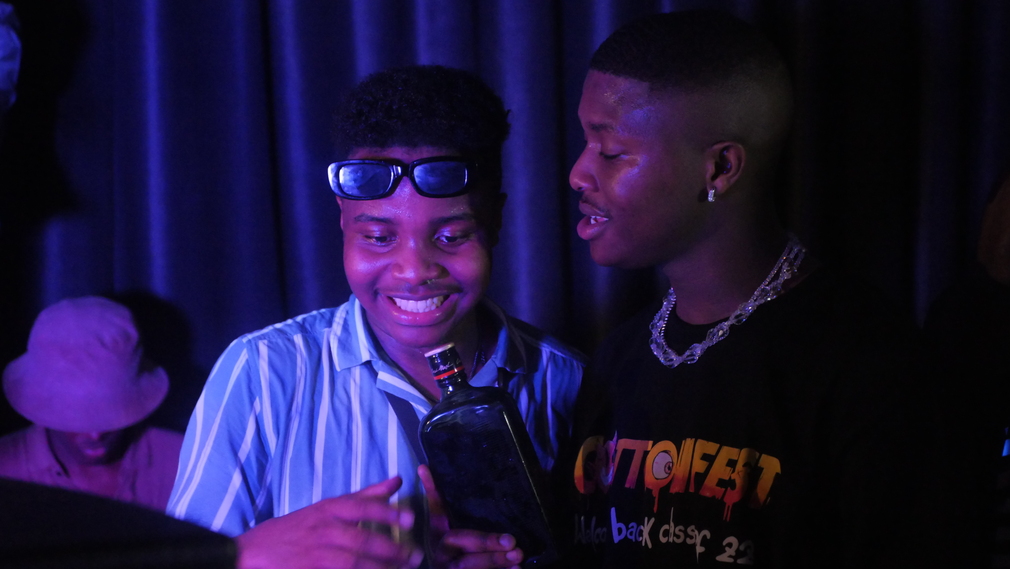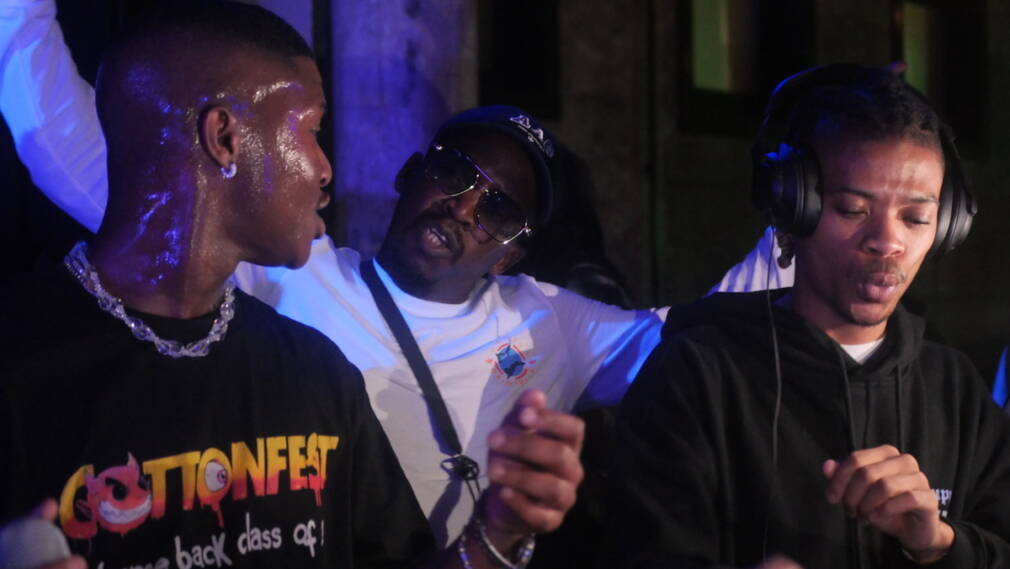South African audiences are used to overnight stardom and one-hit wonders. Especially since the rise of the internet, it is common for young and inexperienced artists to suddenly become celebrities with one song, sometimes even by accident, through a viral video or a catchy trend. From house to gqom to amapiano, in all these bustling, hyperproductive scenes, the rise to fame of many of these chosen ones has been as quick as their omission. Ch’cco is not one of those. Blowing up to the mainstream in 2021 with the now classic bacardi-infused amapiano hit “Nkao Tempela”, the former rapper has managed to capitalize on his first breakthrough to increase his air of curiosity and expectations. Ch’cco’s lazy and smooth flow, mixing American hip-hop swagger with strong Pretorian cultural references, have become a trademark. With a few features and only four (four!) tracks to his official name since 2019, his latest “Pele Pele” already a hit, the vocalist has imposed himself as South Africa’s new golden boy, from filling up venues in his country to touring Europe and collaborating with international artists like Nigeria’s Teni and Tanzania’s Marioo. His Instagram is filled with pictures of young fans in frenzy, he effortlessly rubs shoulders with the current South African amapiano jet-set (Focalistic, Felo Le Tee, DBN Gogo, Pabi Cooper)… and all of this without having released an official project. Who is Ch’cco – and where will he stop? PAM caught up with the young rockstar right after a packed show in Paris.
Let’s start at the beginning. You mainly grew up in Pimville (Soweto) and Mamelodi (Pretoria). Can you tell me how this environment contributed to the artist you are today?
Growing up in Mamelodi was pretty dope. I was initially brought up by my grandma in Soweto, Pimville. There, I was exposed to a lot of cultures: Zulu, Tsonga, Venda… But in Mamelodi it was different, because Mamelodi and Pretoria are almost like their own country. When I went to Pretoria it felt like I was in a completely different place: the music, the language, the sound… That was how I understood Pretoria as a whole, everything was just boxed in. How it affected me? It’s so rich with the bacardi, but at the same time we still had a lot of different music. Motswako rap, for example, which was not that big – RIP to the legend HHP. I think the city’s biggest breakthrough was with Foca and Vigro’s “Ke Star”. That created a curiosity for… “What else do you have to say? What exactly is this language?”
I find it interesting that your first release on Spotify (“Chicco’s duo”) is a hip-hop/r&b project. What were your musical influences at the moment you released it?
“Ch’cco’s duo”! One of my favorite releases. At the time I was listening to… obviously, “Impractical” had that Afrobeats, that Burna Boy, Wizkid, Davido feel. The powerhouse, the Nigerian giants. Yemi Alade was also there, Tiwa Savage was also there… it’s a long list. And then as far as hip-hop was concerned, we listened to a lot of local hip-hop, of course heavily influenced by American hip-hop here and there, but mostly AKA (supamega!), Riky Rick, Cassper Nyovest, Emtee, Nasty C, A-Reece, Shane Eagle… The list goes on. But I think bacardi is by far one of the most important genres, as far as its influence is concerned in me and amapiano. Also kwaito. But yea, Mamphoza, Makhabacity Productions, Enny Man… The list goes on. It had a very significant impact in my life.
Was it through “Chicco’s duo” that you ended up working with Mellow & Sleazy on “Nkao Tempela”?
It was actually not! “Ch’cco’s duo” was a project I put out a long time ago, a year before I met Mellow & Sleazy. Mellow & Sleazy was internet engagement. What happened was I used to post a lot of videos rapping in front of the camera, and then Sleazy hit me up on Instagram. “Oh man, you must pull up and come record on some ‘piano a bit, your buzz is nice…” and that actually never happened. Long story short, one of my greatest friends, Fake Love, did a kind gesture for me: Mellow & Sleazy sent him the beat, and he told me I can have it. And that’s how “Nkao Tempela” was made! Went viral on social media and… (shrugs).
Did you expect “Nkao Tempela” to bring you this level of success?
Absolutely not. Because we hadn’t put in a huge amount of work. It was so rapid, it was crazy: the traction, the exposure, the growth at large… And funny story, do you know what “Nkao Tempela” means? It means “I can be too much”. And we haven’t done anything as of yet!

When the song blew up, did you have any other projects in your life other than being a full time artist?
I had just quit working at a club. I move with my team, Cheap Internet, it’s like a powerhouse. There’s graphics, videography, photography, lighting… So at the time, as a team, we were working at a club, doing marketing. We were doing events, hosting dope shows. But then, we had to figure something else out.
Tell us about Pitori Super League.
Pitori Super League is a movement that we started. It wasn’t even a conversation, it just happened. Focalistic, Pabi Cooper, Mellow & Sleazy, M.J. Everyone else from Pretoria who is dope. It’s not a label, a deal, we’re just doing dope music together and we just happen to all come from Pretoria so we are just embracing that. There’s a famous landmark in Pretoria called the Union Building. So it being there just shows how united everyone is in general.
Amapiano artists are known to be extremely productive. Yet, despite your blossoming career, it seems like you are really taking your time to drop your first project. Is that a deliberate strategy?
Most definitely. We actually honor the process of making music and engaging with people, because you are touching people’s souls, it’s not a joke. It’s a very sacred process. So we are taking time to release music… But the music is there, trust me! It’s just about timing, and how God has packed everything for us. It’s about letting Jesus take the wheel. On a serious note, the music is there. A lot of it.
What do you think about the European crowds’ reactions to your shows?
It’s insane. In fact, sometimes it goes crazier than the reception we get at home. You don’t expect your music to make it that far. It’s an 11 hour flight, so to see how fast your music is traveling via the internet, we are only blessed to be able to engage with everyone and hope to do more – and fill up the O2 in London!
How important is being open to you as a person and artist?
I’m not good with words, so when words fail me, the best I can do is sing because it’s easier for me to communicate when I’m singing. I paint a picture with my music, like you’re in the middle of a series and experiencing different flavors of melodies as the message hits home. My music talks a lot about myself and that’s why I think people connect to me on a different level.




